Breast Reconstruction in Spain
Search and Compare the Best Clinics and Doctors at the Lowest Prices for Breast Reconstruction in Spain

Find the best clinics for Breast Reconstruction in Spain
With Medijump you can browse 27 facilities offering Breast Reconstruction procedures in Spain. The cheapest price available is $3,570 in Madrid. And for the cheapest price globally, prices start from $477 in India.
Breast Reconstruction in Madrid
Price: $ 3,570
Breast Reconstruction in Marbella
Price: $ 3,576
India offers the best prices Worldwide
Price: $ 477
Hospital Quirón Málaga, located in Calle Especeria, Malaga, Spain offers patients Breast Reconstruction procedures among its total of 22 available procedures, across 3 different specialties. Currently, there's no pricing information for Breast Reconstruction procedures at Hospital Quirón Málaga, as all prices are available on request only, whilst the national average price is approximately $5,343. All procedures and treatments are undertaken by just a small team of specialists, with 2 in total at the Hospital, and they are not accredited by any recognized accreditations institutes
Hospital Ceram, located in Calle del Mediterraneo, Marbella, Spain offers patients Breast Reconstruction procedures among its total of 71 available procedures, across 15 different specialties. Currently, there's no pricing information for Breast Reconstruction procedures at Hospital Ceram, as all prices are available on request only, whilst the national average price is approximately $5,343. There are many specialists available at the Hospital, with 15 in total, and they have multiple recognized accreditations, including: SELMQ - Sociedad Española de Láser Médico QuirúrgicoSEME - Sociedad Española de Medicina EstéticaSEMCC - Sociedad Española de Medicina y Cirugía CosméticaSECPRE - Sociedad Española de Cirugía Plástica, Reparadora y EstéticaSEF - Sociedad Española De FertilidadSEP - Excellence in Private HealthASRM - American Society for Reproductive MedicineAECEP - Asociación Española de Cirugía Estética Plástica
Dr Carlos Rubi Plastic Surgeon, located in Carrer de son Espanyolet, Mallorca, Spain offers patients Breast Reconstruction procedures among its total of 3 available procedures, across 2 different specialties. Currently, there's no pricing information for Breast Reconstruction procedures at Dr Carlos Rubi Plastic Surgeon, as all prices are available on request only, whilst the national average price is approximately $5,343. All procedures and treatments are undertaken by just a small team of specialists, with 2 in total at the Hospital, and they are not accredited by any recognized accreditations institutes
Instituto Perez de la Romana, located in Calle Max Planck, Alicante, Spain offers patients Breast Reconstruction procedures among its total of 34 available procedures, across 6 different specialties. Currently, there's no pricing information for Breast Reconstruction procedures at Instituto Perez de la Romana, as all prices are available on request only, whilst the national average price is approximately $5,343. All procedures and treatments are undertaken by just a small team of specialists, with 3 in total at the Hospital, and they have multiple recognized accreditations, including: RS - The Rhinoplasty SocietyASPS - American Society of Plastic SurgeonsSECPRE - Sociedad Española de Cirugía Plástica, Reparadora y EstéticaAECEP - Asociación Española de Cirugía Estética Plástica
Clinia Granado Tiagonce, can be found in Calle del Gral Oraa, Madrid, Spain and offers its patients Breast Reconstruction procedures as well as 24 other procedures, across 2 different procedure categories. At present, there is no pricing information for Breast Reconstruction procedures at Clinia Granado Tiagonce. The pricing information is quite specialised, so it's only available on request, and the average price is around $5,343. A small team of medical professionals undertake all procedures at the Hospital, with 3 in total, and Clinia Granado Tiagonce is not accredited by any recognised accreditations institutions.
Divinia Clinic Plastic Surgery, can be found in Calle del Gral Oraa, Madrid, Spain and offers its patients Breast Reconstruction procedures as well as 16 other procedures, across 2 different procedure categories. At present, there is no pricing information for Breast Reconstruction procedures at Divinia Clinic Plastic Surgery. The pricing information is quite specialised, so it's only available on request, and the average price is around $5,343. A small team of medical professionals undertake all procedures at the Clinic, with 2 in total, and Divinia Clinic Plastic Surgery is not accredited by any recognised accreditations institutions.
Clinica Dr. Arquero - Madrid, can be found in Calle del Gral Oraa, Madrid, Spain and offers its patients Breast Reconstruction procedures as well as 34 other procedures, across 2 different procedure categories. At present, there is no pricing information for Breast Reconstruction procedures at Clinica Dr. Arquero - Madrid. The pricing information is quite specialised, so it's only available on request, and the average price is around $5,343. Many medical professionals work at the Clinic, with 5 in total, and Clinica Dr. Arquero - Madrid is accredited by just one known accreditations institute, SECPRE - Sociedad Española de Cirugía Plástica, Reparadora y Estética
- Home
- Spain
Compare Before & After Photos of _procedure_photos.phpBreast Reconstruction
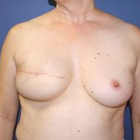
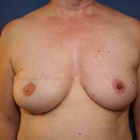
Front view
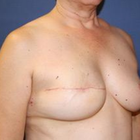
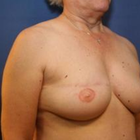
Half-side view
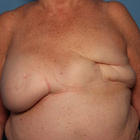
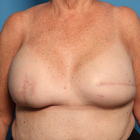
Front view
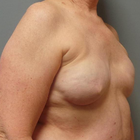
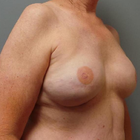
Half-side view
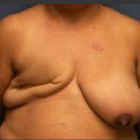
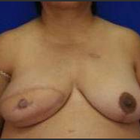
Front view
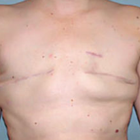
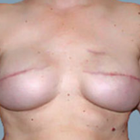
Front view
WHY US?
At Medijump, we're making medical easy. You can search, compare, discuss, and book your medical all in one place. We open the door to the best medical providers worldwide, saving you time and energy along the way, and it's all for FREE, no hidden fees, and no price markups guaranteed. So what are you waiting for?

Free

Best Price

Widest Selection

Risk-Free
What you need to know about Breast Reconstruction in Spain
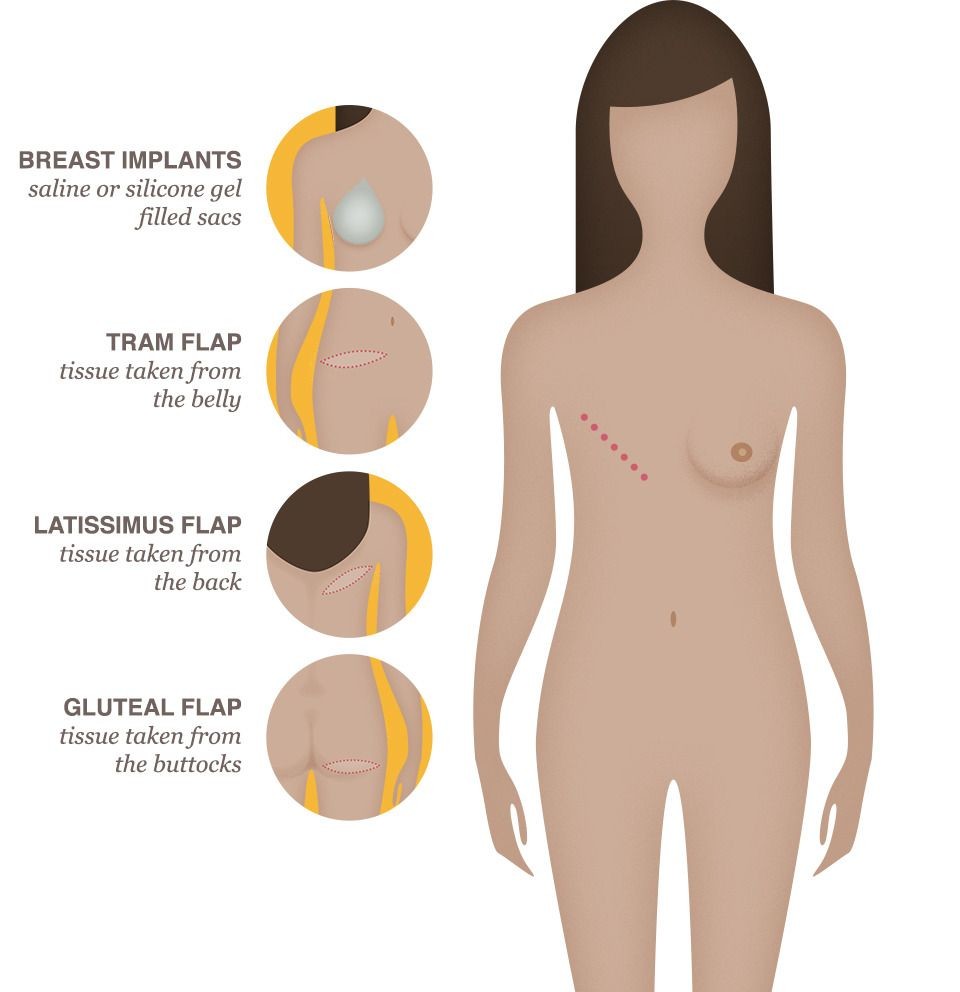
Breast reconstruction is a significant surgery undertaken to rejuvenate the physical form of a woman's chest after losing one or both breasts to cancer or another disease. In Spain, medical centres are well-equipped with top-tier talent in plastic surgery to facilitate this intricate procedure. Every woman's journey is different, and her treatment plan is personalized, considering her unique circumstances and needs.
It's heartening to know that breast cancer treatments like chemotherapy or radiation therapy aren't impeded by reconstruction. Moreover, this surgery doesn't spike the risk of cancer coming back. Undeniably, breast reconstruction is a major surgery with inherent risks, including chances of infection, complications with wound healing, and potential dilemmas related to implants.
What is the cost of Breast Reconstruction in Spain?
Undergoing surgery like Breast Reconstruction brings along a financial commitment. The expense varies extensively, depending on many factors like the complexity of the procedure, the medical professional performing the surgery, the hospital's facility, and the region, amongst others. Generally, the cost might range between $15,000 to $50,000, including multiple surgeries or intricate techniques within this estimate.
Thankfully, in many cases, insurance plans cover such surgical procedures, especially given mandates like the Women's Health and Cancer Rights Act of 1998 in the U.S. Still, out-of-pocket expenses associated with co-payment or deductibles can add up. It's recommended to navigate these aspects with your insurance provider and your chosen healthcare facility in Spain.
What does a Breast Reconstruction Procedure Involve?
Breast reconstruction generally happens in stages, starting with the most complex first, which may either occur at the same time as the mastectomy or later, based on the individual’s specific health conditions or treatment plan.
Two main techniques are employed in breast reconstruction. One is the use of an implant, saline, or silicone to recreate the breast shape. Two, autologous or flap reconstruction where tissue from the patient’s body like the abdomen or thigh is relocated to recreate the breast shape. The method selected is dependent on individual factors like the patient’s health, personal choice, cancer type, and stage.
After the primary surgery and post an adequate healing period, the surgeon performs a second procedure to recreate the nipple and areola. Later, to give it a natural look, the nipple-areola complex is tattooed. Remember that although it is a common procedure, complications might arise involving reaction to anaesthesia, bleeding, infection, poor healing or the need for further interventions.
How Long Should I Stay in Spain for a Breast Reconstruction Procedure?
Post-breast reconstruction surgery, patients typically stay in the hospital for two to five days. However, if the reconstruction was done immediately after the mastectomy, the stay could extend from three to six days.
Overall, a patient should expect to remain in Spain for approximately two weeks post-surgery. This allows enough time for necessary follow-ups and to address any complications, if they arise. As with any major surgical procedure, do not hasten the healing process.
What's the Recovery Time for Breast Reconstruction Procedures in Spain?
The recovery timeframe for breast reconstruction procedures in Spain varies from patient to patient. Generally, for implant-based procedures, patients may take about four to six weeks to recuperate before they return to normal routines. For more complex autologous techniques, particularly those using abdominal tissue, patients might require six to eight weeks for recovery.
Recovering patients need to temper their activities during this period. Avoid lifting heavy objects and defer strenuous exercise until your physician gives a clear signal. Medical assistance should be promptly sought if any discomforting symptoms like chronic pain, redness or swelling surface.
What's the Success Rate of Breast Reconstruction Procedures in Spain?
Medical success cannot just be measured in terms of complication-free postoperative progress or longevity of implants used in breast reconstruction. Patient satisfaction with their surgery, their psychological well-being following the operation, their perception of body image, and their quality of life post-surgery are equally important factors to consider. Studies indicate that between 85% to 90% of women who have undergone breast reconstruction are satisfied with the long-term results.
In Spain, dedicated hospitals and healthcare facilities strive to offer high-quality treatment, ensuring the best possible surgical outcomes using progressive technology and experienced professionals. Still, everyone's response to surgery varies, and outcomes depend on factors such as overall health, age, body type, and compliance with surgical advice.
Are there Alternatives to Breast Reconstruction Procedures in Spain?
Indeed, there are alternatives to breast reconstruction in Spain. The journey of every woman is unique and how she chooses to deal with the loss of a breast, or both, is a highly personal decision. Alternatives include:
- Breast Prostheses or Forms: They are silicone forms that imitate the appearance and feel of natural breast tissue. They come in diverse sizes, shapes and colours to closely match the woman's skin tone.
- Flat Closure: In this method, the surgeons sew up the chest wound smoothly, without constructing a breast mound. This option appeals to women who choose not to have more surgeries or body implants.
- Opting not to undergo reconstruction at all, also termed as "going flat: This method exhibits the woman's choice to live comfortably with her new body shape without artificial substitutes or further surgeries. It is a fully personal decision deserving respect and support.
Each of these options has pros and cons, and the choice depends on the woman’s personal preference, health status, lifestyle, and perception of her body. Regardless of the choice, it’s important to regularly monitor breast health and engage in practices that promote overall wellness.
What Should You Expect Before and After the Breast Reconstruction Procedure?
Before the surgery, comprehensive discussions with the surgeon will take place to understand treatment objectives, outcomes, and possible complications. Preoperative tests, lifestyle modifications, and nutritional advice may form a part of the preparatory process.
Postoperative care is equally important: discomfort, swelling, and bruising are normal and subside over time. Pain management strategies will be provided to help you manage discomfort effectively. Your surgeon will provide personalised guidance on caring for your surgical site, usage of medications, and physical activities.
What sort of Aftercare is Required for Breast Reconstruction Procedures in Spain?
The following points should be considered post-operation:
- Follow the instructions given by your doctor and take your medicines as and when prescribed.
- Consult a nutritionist for a diet plan. A healthy diet helps you recover faster.
- Do not wear a padded or underwire bra until allowed by your doctor.
- Use surgical bras in the early few days after the surgery.
- Avoid excessive unnecessary movement of your breasts.
- Do not lift heavy objects and children - it could stretch on your stitches.
- Change your bandage whenever it gets dirty. Germs can cause infection.
- Do not take a bath when the bandages are still intact. A wet bandage can also be the cause of infection.
- Abstain from sexual activity for at least 6 weeks.
- Take rest - give yourself time to recover.
How Do I Prevent Cancer from Recurring?
Preventing cancer recurrence largely revolves around a balanced, healthy lifestyle coupled with regular medical check-ups. Regular exercise, maintaining a healthy weight, and eating nutritiously can contribute to cancer prevention. Smoke cessation and limiting exposure to secondhand smoke are crucial for both prevention and postoperative recovery.
Regular breast self-examinations, as well as mammograms and follow-up visits, are critical for early detection of any recurrence. Stress management techniques like yoga, meditation, and spending time in nature can also play an essential role in overall health.
Your medical team in Spain is there to support you, offering advice tailored to your individual health status and medical history. Remember, proactive health checks are key to maintaining overall health and preventing the recurrence of diseases like cancer.
What is the ideal time to have Breast Reconstruction surgery after a Mastectomy in Spain?
The decision regarding when to have Breast Reconstruction following a Mastectomy in Spain is largely based on the individual's health status, treatment plan, personal preferences, and discussions with the oncology team. Breast reconstruction can be done at the time of mastectomy (immediate reconstruction) or at a later date (delayed reconstruction). Immediate reconstruction might offer psychological benefits and less overall surgery since both procedures are done together. Yet, if additional treatments such as radiation therapy are required post-mastectomy, opting for delayed reconstruction could be advisable to avoid risks posed by radiation to the new construct.
Remember that deciding on the timing of breast reconstruction is a personal choice and should be made in consultation with your healthcare providers. They can provide specific guidance based on your health condition and treatment plan.
How Will Breast Reconstruction in Spain Impact My Routine Mammograms and Breast Cancer Detection?
Breast reconstruction surgery may impact the way routine breast cancer screenings are conducted. After a mastectomy with or without reconstruction, women usually don't need routine screening mammograms on the treated side since all breast tissue has been removed. However, they would need routine mammograms for the untreated breasts.
If you've had reconstruction using your own body tissue, your surgeon or oncologist will guide you on whether or not you'll require mammograms on the reconstructed breast. Remember, mammograms can still be performed on reconstructed breasts, and self-breast exams should be a regular part of your health routine.
Whilst the information presented here has been accurately sourced and verified by a medical professional for its accuracy, it is still advised to consult with your doctor before pursuing a medical treatment at one of the listed medical providers
No Time?
Tell us what you're looking for and we'll reachout to the top clinics all at once
Enquire Now

Popular Procedures in Spain
Prices Start From $497

Prices Start From $208

Prices Start From $834

Prices Start From $500

Prices Start From $93

Prices Start From $85

Recommended Medical Centers in Spain for Breast Reconstruction

- Interpreter services
- Translation service
- Religious facilities
- Medical records transfer
- Medical travel insurance
- Health insurance coordination
- TV in the room
- Safe in the room
- Phone in the room
- Private rooms for patients available

- Interpreter services
- Translation service
- Religious facilities
- Medical records transfer
- Medical travel insurance
- Health insurance coordination
- TV in the room
- Safe in the room
- Phone in the room
- Private rooms for patients available

- Interpreter services
- Translation service
- Religious facilities
- Medical records transfer
- Medical travel insurance
- Health insurance coordination
- TV in the room
- Safe in the room
- Phone in the room
- Private rooms for patients available

- Interpreter services
- Translation service
- Religious facilities
- Medical records transfer
- Medical travel insurance
- Health insurance coordination
- TV in the room
- Safe in the room
- Phone in the room
- Private rooms for patients available

- Interpreter services
- Translation service
- Religious facilities
- Medical records transfer
- Medical travel insurance
- Health insurance coordination
- TV in the room
- Safe in the room
- Phone in the room
- Private rooms for patients available

- Interpreter services
- Translation service
- Religious facilities
- Medical records transfer
- Medical travel insurance
- Health insurance coordination
- TV in the room
- Safe in the room
- Phone in the room
- Private rooms for patients available

- Interpreter services
- Translation service
- Religious facilities
- Medical records transfer
- Medical travel insurance
- Health insurance coordination
- TV in the room
- Safe in the room
- Phone in the room
- Private rooms for patients available

- Interpreter services
- Translation service
- Religious facilities
- Medical records transfer
- Medical travel insurance
- Health insurance coordination
- TV in the room
- Safe in the room
- Phone in the room
- Private rooms for patients available

- Interpreter services
- Translation service
- Religious facilities
- Medical records transfer
- Medical travel insurance
- Health insurance coordination
- TV in the room
- Safe in the room
- Phone in the room
- Private rooms for patients available

- Interpreter services
- Translation service
- Religious facilities
- Medical records transfer
- Medical travel insurance
- Health insurance coordination
- TV in the room
- Safe in the room
- Phone in the room
- Private rooms for patients available
Breast Reconstruction in and around Spain
About Spain
Historic Spain is home to the third-highest number of UNESCO World Heritage Sites, after Italy and China. Part of the Iberian Peninsula, along with Portugal, Spain also shares borders with France and the less well-known, Andorra. The country itself is made up of several regions, both on the mainland and out at sea, with the Canary Islands closer to Morocco than Spain - they are located in the Atlantic Ocean, whilst the Balearic Islands are a little closer to home, in the Mediterranean Sea. On the mainland there is Central Spain, home to the capital, Madrid, Catalonia in the East, home to the second city, Barcelona, and the Basque Country in the North, to name but a few.
Spain sees an estimated 100,000 medical tourists each year, many of which travel for Breast Reconstruction procedures. The biggest target market is from the UK, accounting for one in four of Spain's 60m annual tourists. An excellent healthcare system combined with warm temperatures and competitive prices means that Spain is now one of the more popular destinations in Europe for medical tourism. The most popular procedures tend to be cosmetic surgery, fertility treatments, bariatric surgery, cardiac surgery, orthopedics, urology, and bone marrow transplants.
Popular Parts of Spain
Spain has diverse landscapes, dynamic cities, influential art, and delightful food.
- Madrid is the capital of Spain. Modern infrastructure and historic neighborhoods blend nicely in the city. Known for its glorious fashion, food, and nightlife, the city has a lively spirit. Rest in El Retiro Park under the sun or take a guided tour in Palacio Real. Tourists who love sports can watch a Real Madrid soccer match.
- Barcelona has a plethora of attractive architecture, unique food beautiful beaches, and a vibrant nightlife. It is the most popular tourist destinations in the country. Visit Picasso Museum, Enjoy Gaudi’s Architecture the church of the Sagrada Família, or visit the Barcelona History Museum and enjoy the beach.
- Valencia is Spain’s third-largest city. The city is filled with an array of art nouveau buildings as well as Gothic and Renaissance monuments. Try all the food that the city offers, especially the famous paella. Be inspired by the stunning Cuidad de las Artes y las Ciencias, a massive building in the old Turia riverbed.
- Palma de Mallorca is a very welcoming city for international tourists. It has a number of historical attractions, Gothic churches, and the beautiful Mediterranean Sea at its feet. Shopping and gastronomic scenes are two of the best things in the city. Tourists can relax in the seafront cafés after a long day.
- Seville is a stunning artistic, cultural, and financial capital of southern Spain. Being a big university town, it has a very youthful vibe everywhere. Spend a day exploring Parque de Maria Luisa, tour Casa de Pilatos, get lost in the maze of Jewish Quarter’s small streets, and discover what the town has to offer on a bike.
- Ibiza is known to have some of the best nightclubs in the world. It is a beautiful island with dozens of amazing things to discover.
Weather and Climate in Spain
Spain has wonderful weather all year-round. Summer starts from June to August and tends to be nice. Tourists can expect warm and sunny weather. The temperature can get as high as 30 °C, sometimes even higher. Summer is the peak season for tourism so prices can increase by up to 50%.
Spring (April to May) and Autumn (September to October) are great times to visit. The weather is mild and perfect to do outdoor activities, although sometimes it can be unpredictable. The country is not as crowded as during summertime.
Winter in Spain is cold but the temperature does not drop too low. The average temperature is between 4 °C to 10 °C. Northern Spain and the mountainous areas sometimes experience snowfall and rain showers.
Getting Around in Spain
The main international airport in Spain is Adolfo Suárez Madrid-Barajas and Barcelona El Prat Airport. Madrid-Barajas is the largest airport in the country. It operates domestic and international flights. The airport connects Madrid with almost every country in the world. It serves several budget airlines such as Iberia Express, Ryanair, and EasyJet. It is the hub for Air Europa and Iberia.
Barcelona El Prat Airport also serves domestic and international connections with almost every country globally. Budget airlines such as Ryanair and WestJet operate flights from this airport. It is the hub for Level and Vueling.
To get to the city center, both airports provide taxis, buses, and metro. Taxis are the most convenient transportation mode but usually more expensive. Tourists who travel to Madrid are advised to buy the Madrid Tourist Travel Pass which can be used on any Metro, bus, or suburban train for just 5 EUR.
Spain has a well-designed public transportation network. Tourists can get around Spain by train. There are high-speed (AVE) and regular service trains (Talgo) for long-distance or medium distance travel, the fares are based on a 1st and 2nd class system. For short destinations, tourists can use local trains. It offers one class of seats and makes a lot of stops. 60-year-old and older travelers can get a discount between 25 to 40 percent for train tickets. Children under the age of 13 also qualified for discounts. Buses are another excellent option. Intercity buses are affordable, clean, and safe.
Renting a car gives more flexibility for tourists. International car rental agencies are widely available in the country. The highway system is easy for foreigners to follow. Parking can be quite hard in some cities and historic towns because it can get really crowded.
Taxis have a reasonable price. Spanish taxi drivers are usually trustworthy and don’t cheat. The taxi can be hailed on the street or from a taxi stand (parade de taxi). Available taxis have green lights or signs that say “libre” on them. Taxis run on meters, but if you’re traveling a long distance, you will have to agree on the fare in advance.
Tourist Visas in Spain
Citizens of the European Union, Norway, Liechtenstein, Iceland, and Switzerland can travel to Spain with their identity cards only. Citizens of Australia, Canada, Israel, Japan, the United States, and New Zealand are granted visa-free entry and can stay for up to 90 days. Other countries can check with their nearest Spanish embassy or consulate. Spain is a member of the Schengen Convention. If you hold a Schengen visa, you cannot extend it.
Additional Information
- Local Currency: the official currency is the euro (EUR). 1 USD converts to 0.85 EUR.
- Money & Payments: ATMs are available. Tourists can withdraw money from ATMs that display the relevant symbols such as Visa and MasterCard with a charge of 1.5% to 2%. Credit and debit cards can be used for most purchases, tourists will often be asked to show a passport. Tipping is optional, tourists can leave small change or up to 5% tip in restaurants.
- Local Language: the official language is Spanish. People in major tourist cities speak good English; it is also widely spoken in coastal resorts.
- Local Culture and Religion: The largest religion in the country is Catholic Christianity with 67.5% of the population follows the religion. There are small groups of Muslims, Jews, Buddhists, Hindus, Pagans, Taoists, and Bahá'ís.
- Public Holidays: Spain celebrates Christian holidays. Known as the country of fiestas and festivals, numerous festivals such as The Holy Week, La Tomatina, and The Fallas of Valencia are hosted annually.
Popular Searches
- Plastic Surgery in Thailand
- Dental Implants in Thailand
- Hair Transplant in Thailand
- Breast Augmentation Thailand
- Gastric Sleeve in Thailand
- Gender Reassignment Surgery in Thailand
- Laser Hair Removal in Bangkok
- Botox in Bangkok
- Dermatology in Bangkok
- Breast Augmentation in Bangkok
- Coolsculpting in Bangkok
- Veneers in Turkey
- Hair Transplant in Turkey
- Rhinoplasty in Turkey
- Stem Cell Therapy in Mexico
- Rhinoplasty in Mexico
- Liposuction in Mexico
- Coolsculpting in Tijuana
- Rhinoplasty in Korea
- Scar Removal in Korea
- Gastric Sleeve in Turkey
- Bone Marrow Transplant in India
- Invisalign in Malaysia
- Plastic Surgery in the Dominican Republic
- Tummy Tuck in the Dominican Republic
- Plastic and Cosmetic Surgery in Poland
- Rhinoplasty in Poland
- Hair Implant in Poland
- Dental Implants in Poland
- IVF in Turkey






